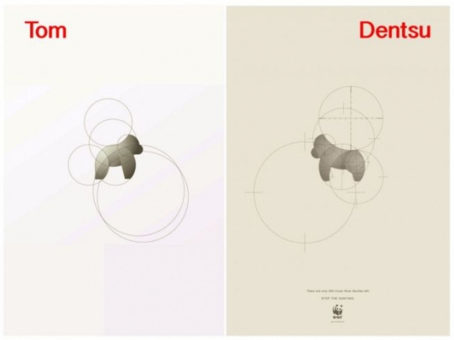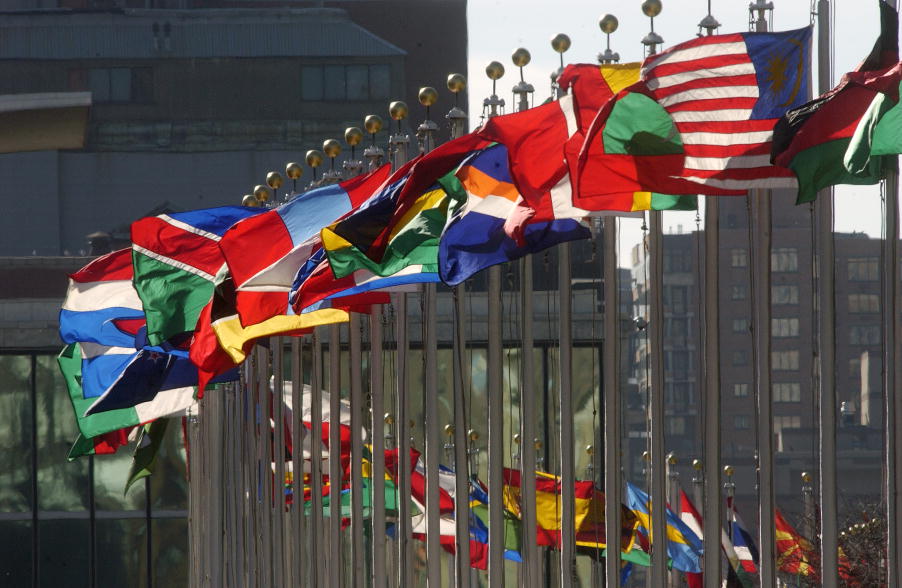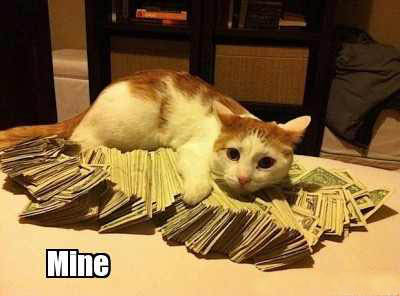

Intellectual Property
If my art or music gets stolen, can Malaysian copyright law protect me?
about 8 years ago JS Lim
If you’re a designer you may have heard of the Dentsu Utama disqualification from the Malaysia 4As advertising awards early last year. Two winning entries were found by Malaysia 4As to be plagiarized.
One of the offending pieces. Credit: Mumbrella
The internet has made sharing and connecting so much easier, but has also made copyright infringements that much easier as well. It’s never a nice feeling when someone earns a lot of money off of your work while you don’t get a single sen (especially in adverts), but not to worry, because we have copyright… right?
Malaysian copyright law is an area content creators all want to know about, whether you’re a graphic designer, comic artist, musician... What qualifies for copyright? Do you have to register to get something copyrighted? How is it protected from copycats?
Let’s first understand what copyright is and how it works, we’ll then get into the details of how to use copyright to protect yourself.
Copyright is a right to control over your work
Copyright is meant to do just that, protect your right to make copies of your work. Legally, it’s defined in Section 13 of the Copyright Act 1987 as “the exclusive right to control in Malaysia” a work’s reproduction, publishing and distribution, performances, and rental. It also includes “moral rights” as under Section 25 of the Copyright Act, which are:
1. The right to be identified as the author;
2. The right to not have their work distorted, mutilated, or modified.
Copyright typically lasts from creation of the work until 50 years after the author’s death as defined in Section 17(1) of the Copyright Act:
"Except as otherwise provided in this Act, copyright in any literary, musical or artistic work which subsists in such work under this Act shall subsist during the life of the author and shall continue to subsist until the expiry of a period of fifty years after his death."
But a Malaysian law can only apply in Malaysia. Can the rest of the world ignore your copyright? Actually...
A copyright in Malaysia applies in 174 countries.
Image from United Nations Photo.
No need to fret, other countries also want their copyright to apply worldwide, and for that 174 nations have signed the Berne Convention as of 3rd May 2017. What this Convention does is that every country that signs promises to give their local copyright protection to the citizens of all countries that signed. This means that if you published a song in India, your copyright would be recognized in Malaysia as well as the 172 other countries.
Great! How do I copyright my ideas?
Unfortunately, ideas can’t be copyrighted, because they are not tangible! According to Section 7 of the Copyright Act, copyright doesn’t protect ideas, only the expression of ideas. This means that you need to write, draw, or record! You’ll get your copyright no matter what quality the work is or what it was made for. As explained in Section 7(3):
A literary, musical or artistic work shall not be eligible for copyright unless—
(a) sufficient effort has been expended to make the work original in character; and
(b) the work has been written down, recorded or otherwise reduced to material form.
Literary works, musical works, artistic works, films, sound recordings, and broadcasts can all be copyrighted. But be aware that mere ideas, procedures, methods of operation, and mathematical concepts cannot be copyrighted.
“Sufficient effort” in Section 7(3)(a) means that you have put enough of your character into a piece of work. For example, you can’t copyright a fact like “the sky is blue”, but your own explanation of why the sky is blue can be copyrighted; in the same way, you can copyright a cover of a popular song if you’ve put it in your own style.
Image from artsixmic.
After you’ve completed your work, it’s time to publish it to qualify for copyright as required by Section 10(2) of the Copyright Act:
Copyright shall also subsist in every work which is eligible for copyright and which—
(a) being a literary, musical or artistic work or film or sound recording is first published in Malaysia;
(b) being a work of architecture is erected in Malaysia or being any other artistic work is incorporated in a building located in Malaysia;
(c) being a broadcast is transmitted from Malaysia.
Section 4 tells us that the work must be made available to the public with consent of the author to be considered published. This means that only showing your art to a few friends may not qualify you for copyright protection, but posting it on Instagram will.
Now that you know all this, how do you now use copyright law to protect your work?
There are 5 main ways to protect your copyright in law
Image from Google Images.
1. It’s best (though not mandatory) to put copyright notices on your work. It’s the “Copyright Ali 2017” you might be familiar with on books, Pokemon trading cards, and such. To use it, put the word “copyright” or the symbol © followed by your name (or company name), and then the year of first publication.
2. Mail a hard copy of your work to yourself through registered mail. Never open this package unless needed in court. This gets you an official date from the post office as a "date of creation", which is an easy and practical way to show legal evidence of your copyright.
3. You can affirm an affidavit before a Commissioner for Oaths. Prepare a copy of your work when going to a Commissioner to get an affidavit. It’ll be accepted as prima facie evidence of your copyright in court (accepted as true unless proven otherwise).
4. Another option is filing a notification of claim with the Copyright Controller, and depositing a copy of your work with the Intellectual Property Corporation of Malaysia (MyIPO). You can then request for a certificate which is also prima facie evidence of your copyright.
5. Sign a Non-Disclosure Agreement (NDA) with all potential clients and business partners. This binds parties to keep information to themselves and not put it to their own use.
Bonus: 4 practical steps you can take to make life harder for copyright thieves
Image from Okayface.
As you may already know, legal costs are expensive and it’s unwise to wait until a copyright problem comes up before taking action. Whether or not you make a lot of money on your work, remember that copycats are always one step behind you because they aren’t you! Keep on keeping on dear creator! Some people choose to take copying as a form of flattery and validation - you’re doing something valuable and worthwhile.
Here are some practical steps to deter copyright infringers and lower your likelihood of having to pursue a lawsuit.
1. Encrypt your files and make sure they can’t be copy-pasted when making business deals. With your copyright notice in your work, this ensures that no one can modify your files and claim them as their own. Where offline, control who has access to your physical copies and lock your work away safely in public spaces.
2. Disable right-click saving on your website. You may need to consult someone with web development expertise, but it’s a simple way to protect your copyright online.
3. For artistic works in particular, it may help to make lower resolution copies of your work available online and keep the highest resolution for yourself. Reason being copycats may not be able to do as much with a lower quality picture. It also helps to prove you have the original.
4. Become well-known. No, serious! It’s way harder for copycats and thieves to get away with copying something famous. People would catch on quickly and call out the copycat. Imagine trying to get away with copying the Mona Lisa, or trying to call “Tale as old as time” your own original song. Good luck with that!
Copyright AskLegal 2017 :)
Jie Sheng knows a little bit about a lot, and a lot about a little bit. He swings between making bad puns and looking overly serious at screens. People call him "ginseng" because he's healthy and bitter, not because they can't say his name properly.



